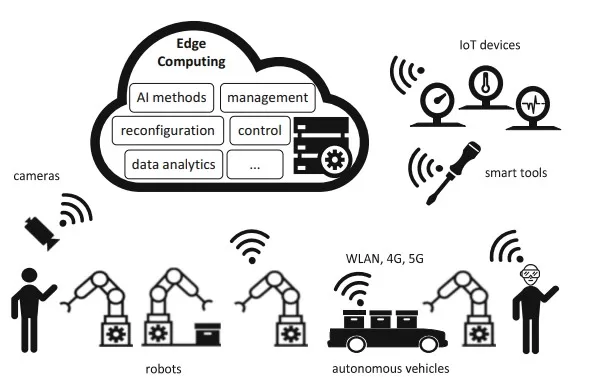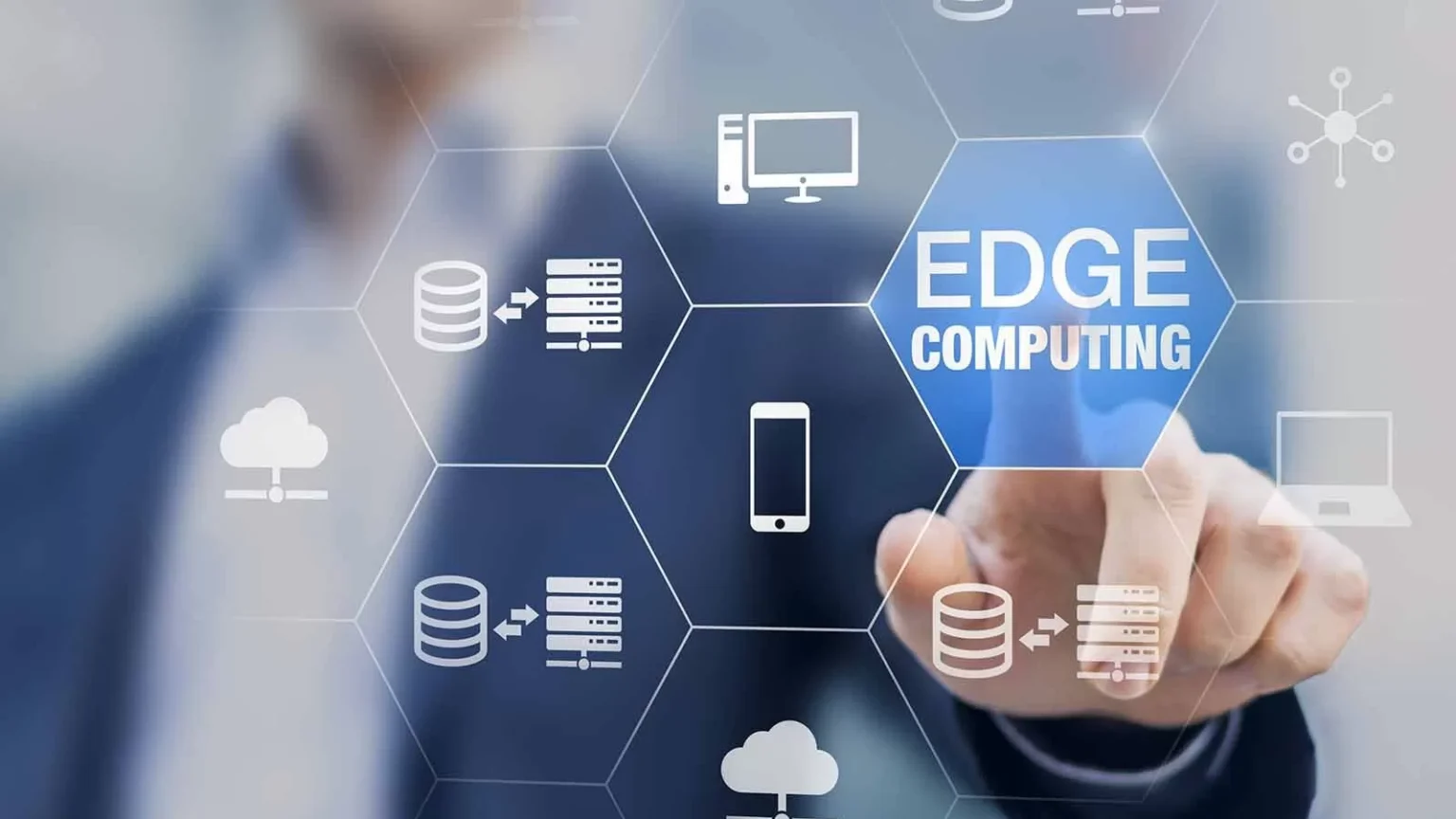Introduction
In the fast-evolving digital landscape, data is the new oil, and nowhere is this phrase more relevant than in the Gulf region. With its rapid technological adoption, futuristic vision, and strong focus on innovation, the Gulf has become a global hub for smart cities, artificial intelligence, and digital transformation. But as digital reliance grows, so does the volume of data being generated every second. Traditional cloud systems, while powerful, are not always sufficient to manage and process data at the speed businesses and governments require. This is where edge computing steps in, revolutionizing the way data is processed in real time.
Edge computing enables data to be processed closer to its source, reducing delays and improving efficiency. For the Gulf, where smart city projects, connected healthcare, oil and gas operations, and financial technologies depend on lightning-fast responses, the role of edge computing is becoming central. This article explores how edge computing is shaping real-time data processing in the Gulf, its impact across industries, and what the future looks like in this digitally ambitious region.
Understanding Edge Computing
Before diving into its applications, it’s important to understand what edge computing means. In simple terms, it is a distributed computing model that brings computation and storage closer to where data is generated rather than relying entirely on distant centralized cloud servers. Imagine sensors in oil fields, autonomous vehicles, or smart surveillance cameras producing massive amounts of data every second. Instead of sending all this data to far-off servers for analysis, edge computing allows it to be processed locally, right at or near the source.
This approach offers three major benefits: reduced latency, improved security, and better bandwidth efficiency. In the Gulf, where decisions often need to be made within milliseconds whether in energy management, transportation, or healthcare these benefits are invaluable.
Why Real-Time Data Processing Matters in the Gulf
The Gulf region has positioned itself as a leader in adopting transformative technologies. Countries such as the United Arab Emirates, Saudi Arabia, and Qatar are investing heavily in AI-driven smart cities, next-generation healthcare, advanced logistics, and digital infrastructure. These developments rely heavily on real-time data.
Take autonomous transportation systems, for example. A self-driving car in Riyadh or Dubai cannot afford even a second’s delay in receiving information about obstacles or traffic signals. Similarly, an oil refinery in Kuwait cannot wait for cloud servers thousands of miles away to analyze sensor data and alert engineers about a potential hazard.
Real-time data processing ensures safety, efficiency, and reliability. For the Gulf’s economic diversification goals and technology-driven ambitions, it is not just an advantage but a necessity.

Edge Computing in Smart Cities
Smart cities are the backbone of the Gulf’s vision for the future. Projects such as Saudi Arabia’s NEOM and Dubai’s Smart City initiative are pushing the limits of what urban living can achieve with technology. From traffic management and energy distribution to public safety and digital services, smart cities run on data.
Edge computing enables city-wide Internet of Things (IoT) networks to operate smoothly. Traffic lights can adjust in real time based on congestion, surveillance cameras can detect unusual activity instantly, and energy grids can balance supply and demand dynamically. Without edge computing, the vast amount of data generated by these systems would overwhelm traditional infrastructure and create unacceptable delays.
In essence, edge computing is the silent power behind the Gulf’s futuristic cityscapes, ensuring real-time responses that make life safer, more convenient, and more sustainable.
Transforming Oil and Gas Operations
The Gulf’s oil and gas industry, a cornerstone of its economy, has long relied on technology to maximize efficiency and safety. Edge computing is now playing a transformative role in this sector.
Oil rigs, pipelines, and refineries are equipped with thousands of sensors that monitor pressure, temperature, and equipment performance. By processing this data at the edge, engineers can detect anomalies instantly, preventing accidents and reducing costly downtime. Real-time insights also optimize drilling operations, enhance predictive maintenance, and improve worker safety.
In a sector where every second matters and every disruption can mean millions in losses, edge computing is proving to be a game-changer. It is helping Gulf countries not only maintain leadership in traditional energy but also transition smoothly into a technology-powered energy future.
Revolutionizing Healthcare
Healthcare in the Gulf is undergoing a digital transformation, with AI, telemedicine, and connected health devices becoming more mainstream. Here, edge computing is enabling real-time data processing that directly impacts patient lives.
Wearable devices that track heart rate, oxygen levels, or glucose can immediately analyze data and alert doctors if something is wrong. In emergency rooms, medical imaging can be processed instantly to aid rapid diagnosis. Even remote areas in the Gulf can benefit from real-time telemedicine powered by edge computing, reducing the strain on centralized hospitals.
The integration of edge computing in healthcare ensures timely interventions, personalized care, and improved patient outcomes—making it an essential pillar of the region’s health sector development.
Enhancing Financial Services
The Gulf’s financial sector is embracing digital banking, blockchain, and fintech solutions at a rapid pace. Edge computing helps secure and streamline these services by enabling real-time fraud detection, faster transaction processing, and personalized customer experiences.
For example, when a suspicious transaction occurs, edge-enabled systems can flag it instantly without waiting for remote server analysis. Similarly, customer data can be processed locally to deliver faster, more secure digital banking services.
This shift not only enhances trust in Gulf’s financial institutions but also supports their ambitions to become global fintech leaders.
Supporting Logistics and Transportation
Logistics and transportation are vital to the Gulf’s role as a global trade hub. Ports, airports, and highways see massive flows of goods and people daily. Edge computing ensures that logistics systems can respond quickly to dynamic changes.
At ports, sensors and AI cameras can process cargo data in real time, reducing bottlenecks. In aviation, edge systems support predictive maintenance of aircraft and streamline passenger services. On highways, edge-enabled smart transportation systems reduce congestion and improve safety.
The Gulf’s goal of becoming a logistics powerhouse depends heavily on such seamless, real-time operations, and edge computing is at the heart of it all.

Security and Defense Applications
National security is a high priority in the Gulf, and real-time intelligence is critical for defense systems. Edge computing allows faster analysis of surveillance data, drone feeds, and cybersecurity threats. By reducing latency, security teams can act immediately to neutralize risks.
With the rise of cyberattacks and the increasing complexity of global security challenges, edge computing gives Gulf nations a powerful tool to safeguard their digital and physical borders.
The Role in Sustainability
Sustainability is a core part of the Gulf’s long-term vision. Edge computing supports this by enabling smarter energy management, reducing data center load, and lowering energy consumption.
For example, in renewable energy projects like solar farms, edge systems can optimize power generation and distribution in real time. This not only improves efficiency but also helps Gulf nations meet their ambitious sustainability goals while reducing carbon footprints.
Challenges to Edge Computing Adoption
While the benefits are clear, edge computing adoption in the Gulf is not without challenges. Building the necessary infrastructure, ensuring interoperability, and addressing cybersecurity risks are key hurdles. The cost of deploying widespread edge devices and integrating them with existing cloud systems can also be significant.
However, given the Gulf’s track record of embracing disruptive technologies, these challenges are being actively addressed through policy support, private sector innovation, and regional collaborations.
The Future of Edge Computing in the Gulf
Looking ahead, edge computing is set to become even more integral to the Gulf’s digital transformation. As 5G networks expand, the synergy between 5G and edge will unlock new levels of real-time data processing. The rise of AI-driven decision-making, autonomous systems, and Industry 4.0 will further increase the reliance on edge solutions.
From the futuristic NEOM city in Saudi Arabia to the smart airports of Qatar and the UAE’s advanced healthcare systems, edge computing will remain the silent yet powerful engine driving progress.
The Gulf’s ambition to lead the world in innovation makes it one of the most promising regions for edge computing adoption. With continued investments, collaborations, and forward-looking policies, the region will not just keep up with global trends but set new benchmarks for how edge computing shapes the future.
Conclusion
The role of edge computing in real-time data processing in the Gulf is nothing short of transformative. It empowers industries ranging from energy and healthcare to finance and transportation, fuels smart city development, and strengthens national security. By bringing computation closer to the source of data, it enables the Gulf to process information faster, safer, and more sustainably.
As the region pushes forward with bold visions like smart cities, advanced healthcare, and digital-first economies, edge computing will remain at the core of these ambitions. It is not just a technology it is a foundation for the Gulf’s future growth and innovation.
The Gulf has always been known for turning vision into reality, and with edge computing, it is once again proving that it can take bold steps to embrace the future. In the years ahead, the power of edge computing will continue to accelerate progress, strengthen industries, and position the Gulf as a global leader in real-time data innovation.
Do follow Gulf Magazine on Instagram.
Also Read – Smart Mobility Solutions Driving Progress in Gulf Cities



